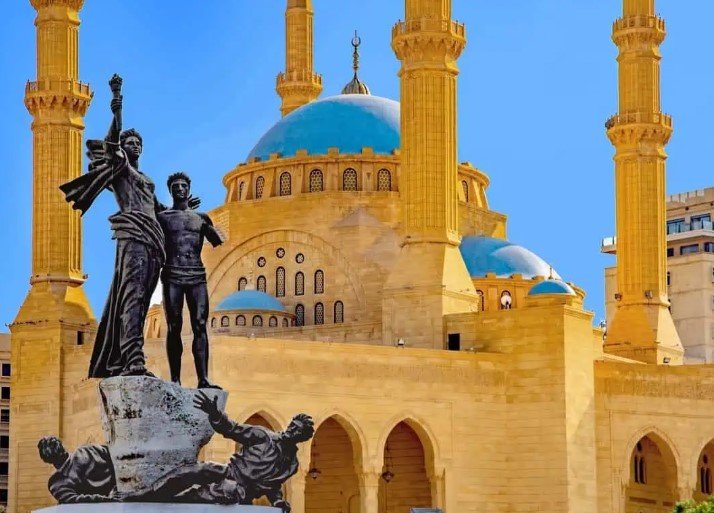The World’s Most Dangerous Destinations for Americans in 2024

Traveling abroad can be an exciting and enriching experience, but it also comes with risks. Some countries are more dangerous than others, especially for American citizens who may face hostility, violence, or kidnapping. The U.S. State Department issues travel advisories for every country in the world, ranking them from Level 1 (Exercise Normal Precautions) to Level 4 (Do Not Travel). As of February 2024, 22 countries have a Level 4 advisory, meaning that Americans should avoid them at all costs. Here are some of the most dangerous places overseas that Americans should not visit in 2024:

Afghanistan: A War-Torn Country with No U.S. Embassy
Afghanistan is one of the most unstable and violent countries in the world, plagued by decades of war, poverty, and human rights violations. The Taliban, a radical Islamist group, has regained control of most of the country, imposing harsh laws and punishments on the population. The U.S. withdrew its troops and closed its embassy in 2023, leaving Americans with no diplomatic protection or assistance. The risk of kidnapping, detention, terrorism, and landmines is extremely high for anyone who travels to Afghanistan.

Belarus: A Russian Ally with No Freedom of Expression
Belarus is a former Soviet republic that has maintained close ties with Russia, forming a union state that some see as a threat to the sovereignty of both countries. The authoritarian regime of President Alexander Lukashenko has cracked down on any opposition or dissent, suppressing civil rights and media freedom. The U.S. does not have an embassy in Belarus, and American citizens may face arbitrary arrest, harassment, or expulsion. The country is also involved in the ongoing conflict in Ukraine, which may escalate into a wider war.
Burkina Faso: A Hotspot of Islamist Militancy and Crime
Burkina Faso is a landlocked country in West Africa that has been ravaged by violence and insecurity. Several Islamist groups, such as al-Qaeda and the Islamic State, have launched attacks on civilians, government forces, and foreign targets. The northern and eastern regions of the country are under a state of emergency, and many areas are inaccessible due to roadblocks and checkpoints. Crime, kidnapping, and armed robbery are also common, and the U.S. government has limited ability to provide consular services.
Central African Republic: A Nation in Chaos and Humanitarian Crisis
The Central African Republic is one of the poorest and most fragile countries in the world, suffering from chronic instability and civil war. Various armed groups control large parts of the territory, committing atrocities against civilians and humanitarian workers. The country is also facing a severe humanitarian crisis, with millions of people in need of food, water, health care, and protection. Traveling to the Central African Republic is extremely dangerous, as there is no functioning government, law enforcement, or infrastructure.
Gaza: A War Zone with No Exit
Gaza is a densely populated strip of land on the Mediterranean coast, controlled by the militant group Hamas. The territory is under a blockade by Israel and Egypt, which restricts the movement of people and goods. Gaza is frequently the scene of violent clashes between Hamas and Israel, resulting in rocket attacks, airstrikes, and casualties. The U.S. does not recognize Hamas as a legitimate authority, and there is no U.S. consulate or embassy in Gaza. Americans who enter Gaza may not be able to leave and may face arrest, kidnapping, or death.
Haiti: A Country in Turmoil and Desperation
Haiti is the poorest country in the Western Hemisphere, facing multiple challenges such as political instability, corruption, crime, natural disasters, and disease. The country has been in a state of crisis since the assassination of President Jovenel Moise in 2021, which triggered widespread protests and violence. The security situation is volatile, and gangs often operate with impunity. The U.S. embassy in Port-au-Prince has limited capacity to assist Americans and advises them to avoid all non-essential travel to Haiti.
Iran: A Hostile Regime with No Diplomatic Relations
Iran is a theocratic state that has a long history of animosity with the U.S., dating back to the 1979 Islamic Revolution and the hostage crisis. The two countries have no diplomatic relations, and the U.S. imposes sanctions on Iran for its nuclear program and support for terrorism. Iran views Americans as enemies and may detain, arrest, or prosecute them on false charges. Iran also hosts several terrorist groups, such as Hezbollah and Hamas, that may target Americans or their allies. Traveling to Iran is extremely risky, and the U.S. government cannot provide any help or protection.
Iraq: A War-Ravaged Country with No Stability
Iraq is a country that has been devastated by decades of war, invasion, occupation, and insurgency. The U.S. invaded Iraq in 2003, toppling the regime of Saddam Hussein, but failed to establish a stable and democratic government. The country has been plagued by sectarian violence, corruption, and terrorism, especially by the Islamic State, which seized large parts of the country in 2014. The U.S. still has troops and contractors in Iraq, but they face attacks from Iranian-backed militias and other groups. The security situation in Iraq is unpredictable and dangerous, and the U.S. embassy in Baghdad may not be able to assist Americans in need.
The Rest of the List
The other countries that have a Level 4 travel advisory as of February 2024 are:
- Burundi
- Chad
- China
- Eritrea
- Libya
- Mali
- North Korea
- Somalia
- South Sudan
- Syria
- Venezuela
- Yemen
These countries have various reasons for being on the list, such as human rights abuses, civil wars, authoritarian regimes, health risks, or a lack of U.S. diplomatic presence. Americans who are considering traveling to these countries should do their research, weigh the risks, and follow the advice of the U.S. government.




